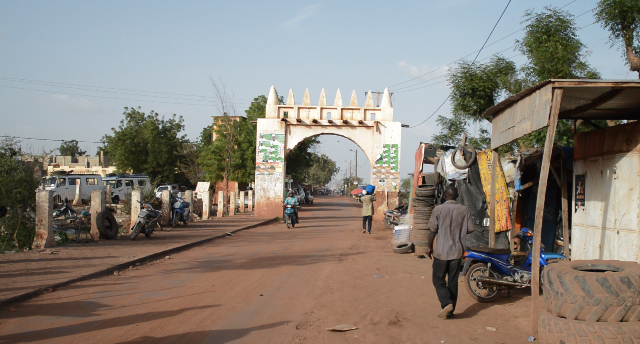Recent developments in Mali have brought international attention back to the lingering challenges of instability and distrust since the signing of Algiers Peace Accord in 2015.
On 5th and 19th of June, thousands of people protested in the streets, demanding, among other things, the resignation of the President Ibrahim Boubacar Keita (IBK).
These protests were triggered by discontent about persistent allegations of corruption and incompetence of the IBK administration, slow progress in addressing insecurity in North and Central Mali, poverty and unemployment, and the recent controversy with the results of the April legislative elections.
This is not the first protest of this nature in Mali, but this time it is different for two reasons. First, in addition to Imam Dicko who is not a new actor to the scene in Mali, the protests have the support of a wide range of actors – trade unions, political actors (including the main opposition party whose leader Soumaila Cisse, kidnapped in March 2020, is still missing), civil society organizations and some members of the security sector, including the police, who have publicly criticized the government for mismanaging security resources.
Second, and most importantly, the protests have the support and participation of a vast majority of the population, especially the youth, with over 70% expressing dissatisfaction with IBK’s mandate, as a recent poll by Inferentielle Opinion Research indicates.
This suggests wide-spread dissatisfaction with the trajectory in Mali which should worry the political leadership in Mali and the international community [who endorsed and have supported the implementation of the Peace Accord].
The current political turmoil in Mali is of grave concern considering the multidimensional impact of an escalation of the political impasse on about 19 million citizens and what a destabilized Mali will mean to West Africa. The consequences will reverberate across the whole West Africa region, with the safety and security of Senegal, Burkina Faso and Niger directly at risk.
If those countries stumble, the effects will ripple across coastal states such as Cote d’Ivoire, Ghana, Togo, Benin and Guinea. It will reverberate even to Nigeria. Mali is the levee that if breached, will create a wave of insecurity throughout Africa’s western region.
Three things must be addressed urgently. First, negotiate a compromise to bring the protests to an end and immediate relief to the country which will not compromise democracy, security and human rights. I am encouraged that IBK and his political coalition, on one side and Imam Mahmoud Dicko and the M5-RFP on the other side have shown openness to dialogue and continue to interact with diplomats and mediators including the United Nations and the Economic Community of West African States (ECOWAS).
Second, ensure the implementation of the Peace Accord in collaboration with other stakeholders crucial to peace and where necessary make needed adjustments to meet new realities through inclusive consultation with all stakeholders. This will foster inclusivity in conflict resolution governance and decision-making which has been at the core of the tensions in Mali.
Finally, the actors and process must acknowledge the influence of geo and international politics in Mali and ensure the cooperation and commitment of the key external players to ensuring peace, stability and growth for the people of Mali.
While the world is distracted by COVID-19, Africa must lead this process through our regional and pan African institutions and leaders, including ECOWAS, the African Union, and the UN Office for West Africa and the Sahel through Dr Ibn Chambas and the world should support these efforts. Ultimately, it will take the goodwill and patriotism of the people of Mali to resolve this impasse and this is why political leaders and the elite must be willing to make compromises to find workable and lasting solutions.
Peace and good governance in Mali will promote the establishment of a secular, democratic and economically stable country. While promoting security is key, it must not be done at the total expense of democracy and human rights.
I believe the separation between state and religion must be protected at all times to ensure inclusive participation of all in the rebuilding of Mali. Mali must address corruption not just from a law and order perspective but as a collective aspiration of the people to enthrone accountability, responsiveness, and inclusive development. Ending the human suffering and the economic hardship requires an urgent and holistic regional response to the prevailing situation in the country.
2020 is the year the AU declared the period of ‘Silencing the Guns in Africa’, and expectations are high. Let the silencing start with Mali with solutions that put the welfare of Mali’s citizens above any other political or non-political consideration.
Olusegun Obasanjo


